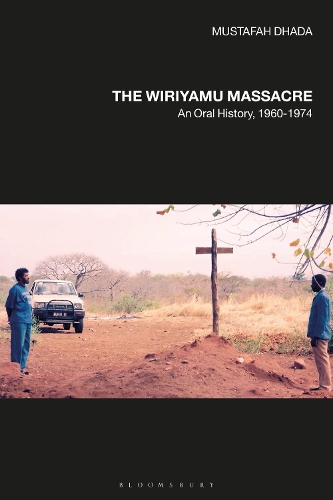
The Wiriyamu Massacre: An Oral History, 1960-1974
(Hardback)
Available Formats
Publishing Details
The Wiriyamu Massacre: An Oral History, 1960-1974
By (Author) Professor Mustafah Dhada
Bloomsbury Publishing PLC
Bloomsbury Academic
20th February 2020
United Kingdom
Classifications
Tertiary Education
Non Fiction
Genocide and ethnic cleansing
African history
967.9
Physical Properties
Hardback
256
Width 156mm, Height 234mm
540g
Description
Using interviews as primary sources this book shines a light on the infamous Portuguese massacre of Wiriyamu in colonial Mozambique in 1972. Twenty-four carefully curated testimonies are presented, covering Portugals last colonial war in Mozambique, and the nationalist response that led to the massacre. Survivors share with you their escape from Wiriyamu, while data collectors, priests and journalists tell of their struggle to collect evidence and defend the truth about the killings in the international press. The Wiriyamu Massacre contextualizes the unique importance of the oral evidence it contains and reveals the in-depth interview methods used to gather the oral testimonies, and subsequently curate the transcript into readable texts. This is the horrific story of Wiriyamu, and what it can tell you about European colonialism, genocide and the darkness in humanity, spoken by the people who were there and who tried to tell the world.
Reviews
Urgent, compelling, and haunting, this is a powerfully indicting collection of testimonials expertly edited, introduced and contextualized. In interviews spanning the voices of perpetrators and survivors and witnesses who collected, smuggled out, and revealed the facts of Wiriyamu, this painstaking oral history reconstructs both the truth of the massacre and the story of its exposure. * AbdoolKarim Vakil, Lecturer in Contemporary Portuguese History, King's College London, UK *
This collection of oral testimonies constitutes a major body of work. It is an irrefutable proof of the massacre which took place in this area and contains all the numerous elements which confirms Portugals genocidal strategy along the river Zambezi since 1972. The research reveals sufficient evidence for the UN to reopen the dossier on Portugals genocidal practices during the Fascist era. A dossier that without any debate, was inexplicably closed in 1974. * Joao-Manuel Neves, Lecturer in Portuguese, University of Paris Sorbonne Nouvelle, France *
Author Bio
Mustafah Dhada is Professor of History at California State University, Bakersfield, USA, and Research Associate at the Center for Social Studies, Coimbra University, Portugal. He is the author of Warriors at Work (1993), and The Portuguese Massacre of Wiriyamu in Colonial Mozambique, 1964-2013 (Bloomsbury, 2015), which won the American Historical Association's Martin A. Klein Prize in African History.
